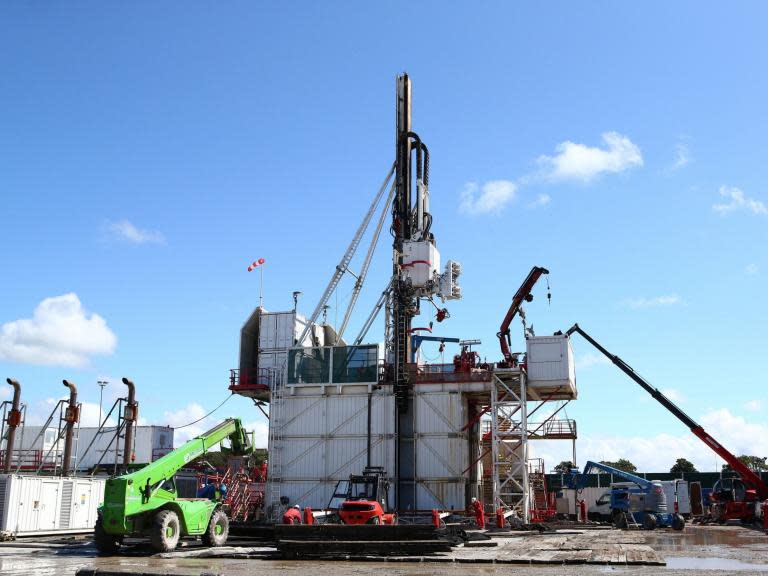Cuadrilla ‘ready to frack’ at second well in Lancashire as pressure on embattled industry builds
Shale gas company Cuadrilla is reportedly ready to commence fracking at a second well at its Preston New Road site in Lancashire, despite recently saying safety regulations had “severely constrained” the amount of gas it can extract.
The company is under mounting pressure as its permit to frack at the site expires in November, and Cuadrilla’s attempt to gain planning permission at another site in the area was rejected earlier this year.
So far the firm, which is the only company to frack in Britain, has partially managed to frack one well at Preston New Road but has been unable to extract as much gas as it hoped, due to earth tremors caused by the process.
The government’s “traffic light” system means operations must be halted when seismic activity registers over 0.5 on the Richter scale.
Despite earlier saying it would be able to operate within this framework, Cuadrilla demanded an “urgent review” of the system in February, saying it was too conservative, and let the company operate at just 14 per cent of its capabilities when injecting water, sand and chemicals into the shale rock.
In February the company urged the Oil and Gas Authority to “urgently review” the traffic light system to enable the Preston New Road wells to be “properly tested and produced effectively, without compromising safety or environmental protection”.
The company said: “An intentionally conservative micro-seismic operating limit during hydraulic fracturing, set at just 0.5 on the Richter scale, had … severely constrained the volume of sand that could be injected into the shale rock.”
Now, a Freedom of Information request by the Financial Times has revealed that in December 2018, Cuadrilla chief executive Francis Egan wrote to the Oil and Gas Authority highlighting the time pressure facing the company.
According to the FT, Mr Egan urged the regulator to carry out a review of the rules and make fresh recommendations on safe seismic limits by the end of March. Meeting this deadline would allow “further exploration wells [at Preston New Road] to be safely and effectively hydraulically fractured and tested within the 2019 planning approval window”, Mr Egan said.
Cuadrilla told the paper it had “recently completed a work programme designed to ensure that our wells remain ready for further hydraulic fracturing”.
The second well has been drilled, but fracking has yet to take place within it. In February, Jim Ratcliffe, the founder of petrochemicals giant Ineos and Britain’s wealthiest man, accused ministers of lacking a “basic understanding of the Richter scale” and implementing unworkable rules that are hampering the fledgling fracking industry. Ineos owns more shale drilling licences than any other firm.
So far, the industry’s pleas have been ignored. The government and the Oil and Gas Authority have both rebuffed lobbying for a change on seismicity limits and the traffic light system.
Cuadrilla has also written to the Environment Agency to request permission to alter the type of hydraulic fracturing fluid it uses at its Preston New Road site to include more chemicals which will allow a greater quantity of sand to be pumped into the shale rock.
After Cuadrilla’s February appeal for a reassessment of the traffic light system, John Sauven, executive director of Greenpeace UK, told The Independent: “Cuadrilla have practically admitted that they can’t make fracking work under the safety rules they’ve been boasting about for years. If they can’t, then they shouldn’t.
“In order to ‘grasp the prize’ of a very small amount of very expensive fracked gas, ministers have already removed people’s property rights and are pushing plans to suppress all local democratic control by allowing fracking without planning permission. And now the industry need just one more regulation to be lifted, the safety limit on earthquakes. Until the next one, of course.”
But some seismologists have been sympathetic to the requests. Brian Baptie, head of seismology at the British Geological Survey, told Reuters in January the current rules are “quite conservative and are set at a level that is unlikely to be felt”.
Cuadrilla has been asked for a comment.

 Yahoo News
Yahoo News 

